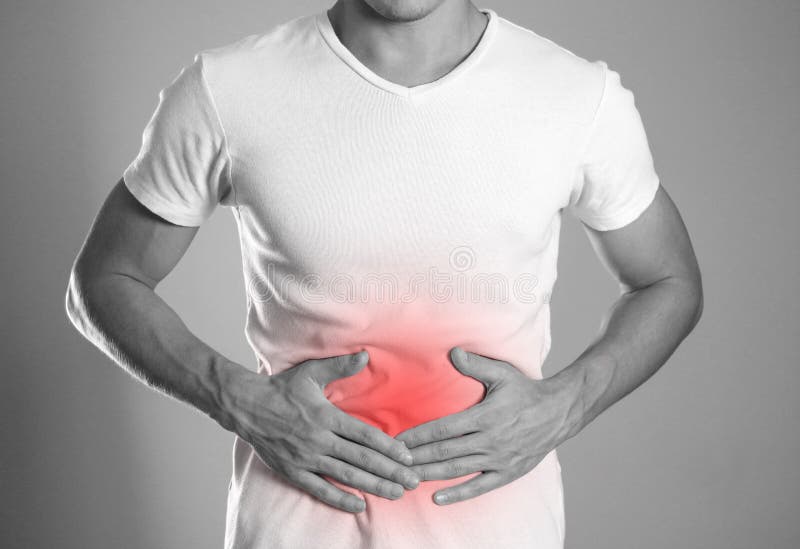Understanding the Gastrointestinal Tract: Symptoms, Conditions, and Care
Understanding the Gastrointestinal Tract: The gastrointestinal tract is a tract or passageway of the digestive system by which food and liquids enter the body, and solid waste is expelled as faeces. The gastrointestinal tract contains all the major organs of the digestive system for the digestion of food; it includes the mouth, pharynx, oesophagus, stomach, small intestine, large intestine, rectum, and anus.
The GI tract is crucial for keeping us healthy. The body needs nutrients, proteins, carbohydrates, fats, vitamins, and minerals from food. Our digestive system usually functions by breaking down food into small pieces, allowing the body to absorb nutrients and use them for energy, growth, and cell repair.
Disruptions to this process can cause a range of signs, from twitches to vomiting. Many of these issues may adjust with time and cause little risk of complications. However, seemingly common stomach issues such as heartburn, indigestion, bloating, irritable bowel movement, abdominal pain, and constipation can be the result of several digestive disorders.
Dr Alok Ahuja, a specialized surgeon provides a guide on understanding the gastrointestinal tract: symptoms, conditions, and care to help people identify them and seek relevant treatment.
Factors Interfering with Gastrointestinal (GI) Tract Functioning
The gastrointestinal (GI) tract is a digestive process that helps in digestion, absorption of nutrients, and elimination of waste. Several factors can interfere with its functioning, leading to various digestive disorders and overall health issues. Here are some key factors:
- Low-Fiber Food: A diet high in processed foods, low in fibre, or Consuming contaminated water, containing triggers like lactose or gluten can contribute to GI issues or interrupt its normal functioning.
- Lifestyle: Anxiety, strain, or sedentary lifestyle, and an inadequate sleep cycle can increase the risk of gastrointestinal problems or cause gastrointestinal ailments.
- Bacterial Infections: Several types of bacteria, viruses, or parasitic in the digestive tract may lead to gastrointestinal or abdominal infections.
- Structural GI: Gastrointestinal abnormalities issues such as Hemorrhoids, Colon polyps, Colon cancer, Crohn’s disease, Inflammatory bowel disease, Diverticular disease, Strictures, and Stenosis hernias or growths, can cause GI problems.
- Treatment: Certain medications, such as antibiotics or long-term use of NSAIDs or OTC medications, can disrupt the balance of gut bacteria and lead to gastrointestinal issues.
- Genetics: Some gastrointestinal diseases, like Crohn’s disease and ulcerative colitis, have a strong genetic component.
- Aging: Aging can slow down the digestive process, leading to issues like constipation. The muscles of the GI tract can weaken with age, affecting bowel movements and nutrient absorption.
What are the Common Gastrointestinal Tract Symptoms

The symptoms of Gastrointestinal tract disorders greatly depend on the individual condition and the affected part of the digestive system. Some common symptoms include:
-
- Abdominal pain or discomfort: Abdominal discomfort is an acute medical condition in which a sharp pain is felt in the stomach or between the bottom of the chest and pelvis. It is caused by overstraining the muscles.
- Bloating: Bloating is caused due to the stretching of digestive organs forming a gas in your gut which makes your stomach feel unnecessarily full.
- Constipation: It is a condition when a person feels difficulty in passing the stool, or bowel movement becomes uncomfortable for them.
- Diarrhoea: It is an acute medical condition where a person’s body makes frequent faeces (waste material of the body) more liquid than usual, caused by bacterial or parasitic organisms.
- Nausea and vomiting: Nausea is a subjective feeling that alerts the body to potentially harmful substances in the GI tract whereas vomiting is the forceful expulsion of harmful substances from the stomach.
- Heartburn and acid reflux: Heartburn and acid reflux can cause a number of issues in the gastrointestinal (GI) tract, including oesophagal damage, respiratory issues, dental problems, etc.
- Blood in the stool: Blood in the stool, also known as gastrointestinal (GI) bleeding, is a sign of a digestive tract disorder, Hemorrhoids, anal fissures, etc. The blood can be mild or severe and can be life-threatening.
- Difficulty swallowing: Difficulty swallowing, also known as dysphagia, can have serious consequences for the gastrointestinal (GI) tract or can cause scar tissue to develop in the oesophagus.
Treatment, Care of Gastrointestinal Tract Disorders
Maintaining a healthy Gastrointestinal tract is crucial for overall well-being. Dr Alok Ahuja has mentioned some common treatment approaches which can help individuals lower the risk associated with gastrointestinal tracts and maintain a healthy digestive system.
- Balanced diet: A balanced diet enriched with proteins, probiotics, fibres can help with gastrointestinal (GI) tract disease by providing the nutrients your body needs to maintain a healthy digestive system.
- Regular exercise: Exercise makes the digestion process faster by moving the food through the digestive tract. Along with digestion, it is also beneficial in bloating, constipation, and irritable bowel syndrome.
- Adequate hydration: Water acts as a lubricant by moving the food through the digestive tract or breaking down the food which helps in absorbing the essential nutrients from the food.
- Stress management: Relaxation techniques such as deep breathing, meditation, and yoga can help reduce stress and improve overall digestive, and gut health.
- Avoid Smoking or Alcohol Consumption: The consumption of alcohol and smoking can negatively affect the digestive system. It causes heartburn, ulcers, gallstones, inflammation, and Pancreatitis.
Note: All this can help support healthy digestion. If you experience persistent digestive issues, it’s essential to consult a healthcare professional to identify and address any underlying conditions.
Conclusion
The gastrointestinal (GI) tract encompasses numerous disorders if not taken the precise care of it. Hence the above-mentioned treatment options may help with the symptoms and conditions associated with Gastrointestinal Tract (GI).
